RESEARCH PUBLICATIONS
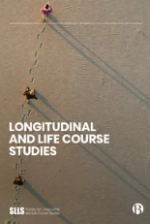
Kent, H., Hogarth, L., Williams, H., Cornish, R. P., Leckie, G. B. (2025)
A" Double Disadvantage": Neurodevelopmental Profile and Poverty Confer Synergistic Risk of Youth Justice Involvement
Longitudinal and Life Course Studies https://bristoluniversitypressdigital.com/view/journals/llcs/aop/article-10.1332-17579597Y2025D000000052/article-10.1332-17579597Y2025D000000052.xml

Middleton, T. (2025)
Justice-Involved Children with Special Educational Needs and Disability: What Are the Implications for Access to Identification and Support Through an Education, Health and Care Plan?
Social Sciences https://www.mdpi.com/2076-0760/14/5/273
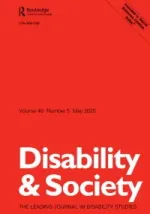
Proctor-Legg, T. (2025)
Restorative practice and young people with special educational needs and disabilities: a scoping study
Disability and Society https://doi.org/10.1080/09687599.2025.2489363

Marder, I., Banwell-Moore, R., Hobson, J., & Payne, B. (2023).
New ideas, enduring cultural barriers? An analysis of recommendations from the All-Party Parliamentary Group on Restorative Justice in England and Wales
Criminology and Criminal Justice https://eprints.glos.ac.uk/13135/
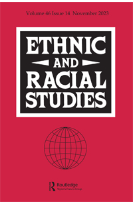
Jones, D., & Tonkiss, K. (2023)
Belonging and Becoming in the City and the Countryside: Young People, (Multi)Culture and the Urban/Rural Divide.
Ethnic and Racial Studies. (In Press) 10.1080/01419870.2023.2247463
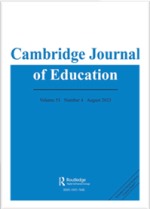
ahmed Shafi, A., Middleton, T., & Jones, C. (2023).
Re-engaging incarcerated children and young people with education and learning using authentic inquiry in Italy, Spain, Germany, and the UK
Cambridge Journal of Education https://eur03.safelinks.protection.outlook.com/?url=https%3A%2F%2Fwww.tandfonline.com%2Feprint%2FAKQ8JCPVTMMPXDAI5E6E%2Ffull%3Ftarget%3D10.1080%2F0305764X.2023.2230161&data=05%7C01%7Chnk201%40exeter.ac.uk%7C99505dafdd6d4b74b12b08db91a7bfb4%7C912a5d77fb984eeeaf321334d8f04a53%7C0%7C0%7C638263921889053428%7CUnknown%7CTWFpbGZsb3d8eyJWIjoiMC4wLjAwMDAiLCJQIjoiV2luMzIiLCJBTiI6Ik1haWwiLCJXVCI6Mn0%3D%7C3000%7C%7C%7C&sdata=Bu%2F77mF1XMStjXFtGFtYB%2FYpV6HSBKYH%2FmOxvXwaH4E%3D&reserved=0
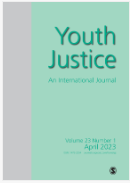
Arthur, R., & Kirk, T. (2023).
Children as covert human intelligence sources: Spies first, children second
Youth Justice https://doi.org/10.1177/14732254231154160
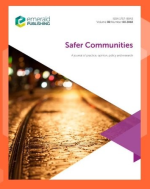
Creaney, S., Burns, S. and Day, A.-M. (2023).
Guest editorial - Special Issue: Theory and practice of co-production and co-creation in Youth Justice (Part I)
Safer Communities https://doi.org/10.1108/SC-04-2023-053
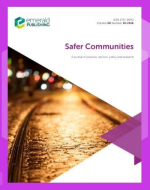
Creaney, S., Burns, S. and Day, A.-M. (2023).
Guest editorial - Special Issue: Theory and practice of co-production and co-creation in Youth Justice (Part II)
Safer Communities https://doi.org/10.1108/SC-07-2023-054
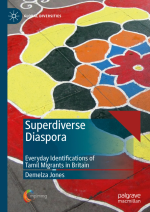
Jones, D. (2019).
Superdiverse Diaspora: Everyday Identifications of Tamil Migrants in Britain
Palgrave Macmillan https://link.springer.com/book/10.1007/978-3-030-28388-9
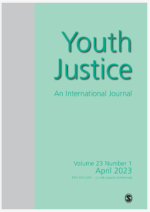
Creaney, S., & Burns, S. (2023).
Freedom From Symbolic Violence? Facilitators and Barriers to Participatory Practices in Youth Justice.
Youth Justice https://doi.org/10.1177/14732254231156844

Kent, H., Kirby, A., Leckie, G., Cornish, R., Hogarth, L., Williams, W. H. (2023).
Looked after children in prison as adults: life adversity and neurodisability.
International Journal of Prisoner Health, 10.1108/ijph-08-2022-0051

ahmed Shafi, A., Little, R. and Case, S., (2021)
Children’s education in secure custodial settings: Towards a global understanding of effective policy and practice.
International Journal of Educational Development, 82, p.102379.
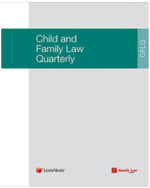
Arthur, R., & Crofts, T. (2022).
The use of intermediaries for young defendants: Overcoming barriers to young people's participation in criminal proceedings
Child and Family Law Quarterly

ahmed Shafi, A. (2020).
The impact of the secure custodial setting on re-engaging incarcerated children with education and learning–A case study in the UK.
International Journal of Educational Development, 76, 102190.
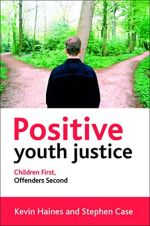
Haines and Case (2015)
Positive Youth Justice: Children First, Offenders Second.
Policy Press http://www.policypress.co.uk/display.asp?K=9781447321712
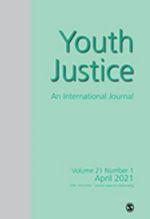
Hampson, K. S. (2018)
‘Desistance Approaches in Youth Justice – The Next Passing Fad or a Sea-Change for the Positive?’
Youth Justice, 18(1), 18–33.

ahmed-Shafi, A. (2019)
‘The Complexity of Disengagement with Education and Learning: A Case Study of Young Offenders in a Secure Custodial Setting in England’
Journal of Education for Students Placed at Risk, January, pp. 1-23.

ahmed Shafi, A. (2018)
Researching incarcerated young people: Navigating Methodological Challenges and Managing Ethical Responsibilities.
International Journal of Research and Method in Education, 1-15.
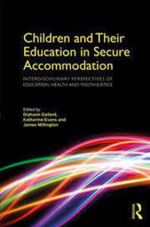
ahmed Shafi, A. (2018)
Re-engaging Young Offenders in a Secure Custodial Settings.
In Gallard, D., Millington, J. and Evans, K. Children and Their Education in Secure Accommodation

Kent H, Williams W, Tonks J (2021).
Neurological Theories. In Brown J, Hovarth M (Eds.) The Cambridge Handbook of Forensic Psychology, Cambridge, UK:
Cambridge University Press, 69-87.
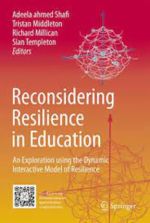
Shafi, A., Middleton, T., Millican, R. and Templeton, S. (2020)
Reconsidering Resilience in Education: An Exploration using the Dynamic Interactive Model of Resilience.
Springer International Publishing, Switzerland.

Templeton, S. (forthcoming)
Understanding Behaviour in Forster
C. & Eperjesi, R. Introduction to Primary School Teaching. SAGE: London

Banwell-Moore R. (2022).
Just an ‘optional extra’ in the ‘victim toolkit’?: The culture, mechanisms and approaches of criminal justice organisations delivering restorative justice in England and Wales.
International Review of Victimology, 0(0). https://doi.org/10.1177/02697580221079993

Banwell-Moore R. (2022)
The Delivery of Restorative Justice in Youth Offending Teams in England and Wales: Examining Disparities and Highlighting Best Practice.
Laws 11(4). MDPI AG: 60. DOI: 10.3390/laws11040060.

Banwell-Moore R and Tomczak P. (2022).
Complaints: Mechanisms for prisoner participation?
European Journal of Criminology, 0(0). https://doi.org/10.1177/14773708221094271
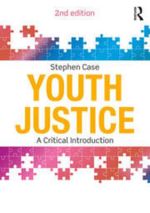
Case (2021)
Youth Justice: A Critical Introduction.
Routledge https://www.routledge.com/Youth-Justice-A-Critical-Introduction/Case/p/book/9780367417796

Case and Haines (2009)
Understanding youth offending: Risk factor research, policy and practice.
Routledge https://www.routledge.com/Understanding-Youth-Offending-Risk-Factor-Reserach-Policy-and-Practice/Case-Haines/p/book/9781843923411

Burns, S. and Creaney, S. (2023)
‘Embracing children ’s voices: Transforming Youth Justice practice through co-production and Child First participation’ in Case, S and Hazel, N (Eds.) Child First: Developing a new Youth Justice System.
London: Palgrave Macmillan.

Case, S., Creaney, S., Coleman, N., Haines, K., Little, R., & Worrall, V. (2020).
“Trusting children to enhance youth justice policy: The importance and value of children’s voices”
Youth Voice Journal.

Creaney, S. (2020)
“Game playing” and “docility”: youth justice in question, Safer Communities
Vol. 19 No. 3, pp. 103-118.

Hampson K. (2023)
‘Cementing Child First in Practice’ in S. Case and N. Hazel (eds) Child First: Developing a new Youth Justice System.
London: Palgrave Macmillan
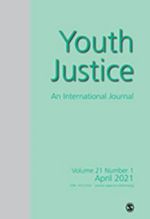
Case, S., & Hampson, K. (2019)
‘Youth Justice Pathways to Change: Drivers, Challenges and Opportunities’
Youth Justice, 19(1): 25–41. https://doi.org/10.1177/1473225418822166

Williams, W. H., Chitsabesan, P., Fazel, S., McMillan, T., Hughes, N., Parsonage, M., & Tonks, J. (2018).
Traumatic brain injury: A potential cause of violent crime?
The Lancet: Psychiatry, 5 (10), 836-844.

Wake, N., Arthur, R., Crofts, T., & Lambert, S. (2021).
Legislative approaches to recognising the vulnerability of young people and preventing their criminalisation
Public Law
NEED MORE INFORMATION?
Do you have something that you'd like to discuss? Please fill out our contact form to get in touch.
CONTACT USBE THE FIRST TO HEAR
Sign up to be the first to hear about latest news and publications.
Thank you for signing up